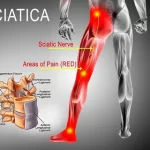Lifestyle is an essential part of one’s overall health. Heart diseases are one of the world’s leading cause of stocks, heart attacks and early deaths. This has become a common trope in our modern world as processed, high sugar and high fat foods take over the majority of our diets. These specific diets can elevate the risk of heart diseases. Similarly, following a healthy and balanced diet can lower that risk. A healthy heart is good for the long run by preventing risks that are not only related to the heart but also your brain. Here, in this blog, we will share 5 types of heart-healthy foods you must include in your diet that will reduce your risk of heart diseases significantly.
Here below is the list of healthy foods that you must include in your daily diet, divided based on categories:
Table of Contents
1. Fruits and vegetables:
Include a variety of fruits and vegetables in your diet, such as citrus fruits, nuts, leafy vegetables, beans, and whatever fruits and vegetables are new to the season. Especially colourful fruits and vegetables that are high in fibre. Usually, green leafy vegetables are filled with a high quantity of fibre and antioxidants, whereas bright citrus fruits are rich in Vitamin C. A diet rich in fruits and vegetables can positively affect your body to reduce blood pressure and mitigate the risk of heart disease and even stroke. while also helping you to age well.
Here are some fruits and vegetables to keep you healthy:
- Apples: Apples have good fibre content; hence, eating apples regularly can help manage high blood pressure.
- Bananas: Bananas are easily available anywhere. It is rich in vitamins B6 and C, fibre, potassium, and magnesium, which keep the blood pressure in check. So, look for firm bananas of any size when you go out grocery shopping.
- Berries: You should include all kinds of berries in your diet, including blueberries, strawberries, blackberries, and raspberries. They all are natural sources of vitamin C and fibre. Frozen berries are healthy too.
- Leafy green vegetables: Vegetables like spinach, kale, and lettuce contain a variety of vitamins like A C E & K, antioxidants, and minerals. Vitamin K, especially, helps support arteries and aids in proper blood clotting. Leafy greens also improve cell functioning, which lines the blood vessels, decreases the stiffness of arteries, and reduces blood pressure.
- Tomatoes: They are high in vitamin C and fibre and are a rich source of antioxidants.
- Carrots: Carrots contain carotenoids, an antioxidant that fights free radicals that cause heart disease.
- Garlic: Eating garlic, even though it might not taste good, will help boost immunity and protect against heart diseases.
2. Whole Grains
Whole grains are an excellent choice for a heart-healthy diet, because of their fibre and nutrient content. Whole grains can help regulate blood pressure and heart health and you should think about replacing refined grains with whole grains in your diet. Including them in your diet will help control cholesterol levels, blood pressure, and weight. They also lower the risk of other heart conditions and diabetes as they contain nutrient-rich bran, germ and endosperm of the grain which refined grains do not have.
These whole grains can include:
- whole wheat
- oats
- buckwheat
- rye
- barley
- brown rice
- quinoa
When you are out shopping, make sure to read the labels. Usually, “whole grain” or “whole wheat” consists of a whole grain product. Try to stay away from refined ingredients such as “wheat flour” or “multigrain.”
3. Healthy Fats
There is a general stigma that all fats are bad for your health, however that is not the case. You will need to understand which type of fat is good for your body and heart. High blood cholesterol builds up plaque in your arteries, called atherosclerosis, which can increase the risk of a heart attack and stroke. Certain foods containing saturated fats, such as butter, red meat, oils, chips etc., are bad for your heart’s cholesterol levels and can also damage your blood vessels by increasing the chances for blood vessel diseases.
The “good” fats, also known as monounsaturated fats and polyunsaturated fats, are beneficial to your cholesterol levels and overall health. These fats lower bad LDL and increase good HDL, prevent heart rhythm abnormalities, fight inflation, and lower blood pressure. They also aid in weight loss.
Monounsaturated fat includes:
- Olive, peanut, and sesame oils
- Avocados
- Nuts (almonds, peanuts, hazelnuts, cashews)
- Peanut butter
Polyunsaturated include:
- Sunflower and sesame seeds
- Flaxseed
- Walnuts
- Soymilk
- Tofu
- Soybean and safflower oils
- Fatty fish (salmon, tuna, mackerel, herring, and sardines)
4. Lean protein sources
Proteins do not just build and maintain muscle and aid in weight loss, they are essential for a balanced diet. Lean protein sources can help you with this. It is protein-rich but low in fat and calories. Thus, you can access protein without having to worry about calories or saturated fats. Lean protein sources are also linked with reducing the chances of heart diseases as there are certain nutrients in lean protein which can lower your cholesterol, blood pressure and the risk of diabetes. Certain protein sources, such as red meat and processed meat like salami and pepperoni, although good sources of protein, have high levels of salt and preservatives which are bad for heart patients.
Some of the best sources of lean protein are:
- White-fleshed fish
- Plain Greek yogurt
- Beans, lentils, and peas
- Skinless white meat poultry
- Tofu
- Tuna
- Quinoa
5. Herbs and spices
We all consume spices and herbs regularly as they are included in all types of cuisines around the world and have survived for a long time. Spices and herbs are well known for their health benefits and can be easily found in our home, and can be used daily in your diet.
Herbs and spices are rich in antioxidants and keep the heart and blood vessels healthy. They are also described as possessing medicinal properties, such as anti thrombotic, anti-atherosclerotic, anti-inflammatory, and anti-arthritic which can help maintain a healthy heart. Adding herbs and spices to your diet can significantly reduce the chances of stroke and heart attack, as many Indian herbs and spices are known for their medicinal properties for blood pressure.
Herbs and spices that are considered to be great for your heart health include the following:
- Turmeric
- Garlic
- Ginger
- Black Pepper
- Chilli peppers
- Cinnamon
- Coriander
Conclusion
A healthy heart is the result of a well-balanced diet and regular exercise. You can choose your diet and see what works for you. Do not try to change anything overnight, and slowly integrate things into your diet. Include whole grains, leafy vegetables, and meat in your diet, as well as a healthy balance of oils or fats for a whole meal.
Your heart health also affects your mental health. Many people associate heart disease with mental health because they are afraid of having a heart attack or stroke. They are also afraid of how suffering from these conditions would impact their loved ones, which makes them even more anxious and worried.
It is therefore important to keep your heart healthy and incorporate health trends to prevent such medical emergencies. A healthy heart assists in the reduction of emotional and mental strain if such an emergent situation were to take place.








